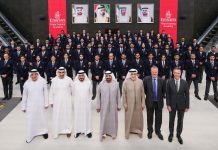SINGAPORE, 9 July 2024: In-flight meals left untouched account for an alarming 18% of all cabin waste, begging the question as to why passengers fail to cancel unwanted meal service ahead of flight departures.
In its latest report, the International Air Transport Association (IATA) says it will join the Aviation Sustainability Forum (ASF) and intends to find out by launching a standardised Cabin Waste Composition Audit (CWCA). The ASF Cabin Waste Composition Auditing Platform will start in September 2024.

CWCA audits have already been trialled in two waves, covering 25 flights (short, medium, and long-haul) at Singapore’s Changi Airport in November 2023 and again in April 2024.
ASF conducted the audits based on a methodology developed by IATA. Preliminary results indicate that the sector generates over 3.6 million metric tonnes of cabin and catering waste annually, with 65% being food and beverage waste. Untouched meals account for 18% of all the cabin waste.
Audit data will guide the airline industry and policymakers in reducing waste production and improving circularity by identifying opportunities for reuse and recycling.
Previous IATA research identified the need for a standardised methodology for conducting cabin waste audits. As a result, harmonised data is not available to underpin decision-making by policymakers, airlines, and caterers regarding waste-related issues. A standardised audit will help solve these issues and enable the sector to demonstrate progress towards waste reduction and improved circularity.
“Managing and reducing waste is important to aviation’s overall sustainability. Obtaining standardised and comparable data regarding the composition and quantity of waste from flights will help the industry reduce the waste it generates,” said IATA’s Senior Vice President of Sustainability and Chief Economist Marie Owens Thomsen.
“Better data will also help policymakers harmonise regulations, which in turn can help optimise the industry’s capability to sort, recycle, and safely reuse waste that cannot be avoided.”






